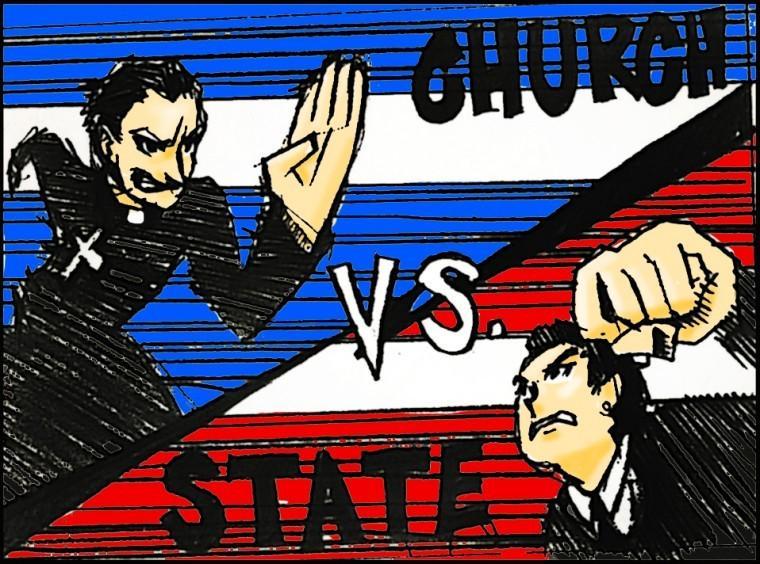When I was growing up in the godless North, one nearby town’s high school made headlines when a student complained about a prayer that had been hung on a wall in the gym since the 1960s. The student, an atheist, said the prayer made her feel unwelcome.
If the prayer didn’t, everyone else sure did.
The heavily Roman Catholic citizens of Cranston, R.I., hemmed and hawed about upholding their precious traditions, but when a federal judge sided with the student, they turned ugly.
A local state representative called the student “an evil little thing,” people threatened her on Twitter and three separate florists declined to deliver her flowers from a national secularist group.
What happened in Cranston is only a microcosm of the treatment that millions of people receive every day, simply because they do not share the same beliefs as most Americans.
Prayer has no place in a public school in this country. It makes children feel unwelcome, causes divisions among students and creates unnecessary trouble for the school.
Not to mention it’s, you know, unconstitutional.
The First Amendment states that no law shall be made “respecting an establishment of religion, or prohibiting the free exercise thereof.”
Now imagine you are an atheist student in a school where students say a short Christian prayer after the Pledge of Allegiance. Being forced to pray to a god you don’t believe in is the definition of prohibiting free religious exercise.
It’s not just atheist or secular students who are hurt by prayer in school, either. Any student whose religion is a minority in his or her school already feels like enough of an outcast without having to be reminded of his or her difference every day.
There are many religions that are still discriminated against in this country. After the anniversary of 9/11, do we need to be reminded of the anti-Muslim hysteria that broke out after the attacks? Or the attack on a Sikh temple that only happened because the shooter didn’t know the difference between Sikhs and Muslims?
Do we really want to bring that kind of ignorance and hatred into our schools? Allowing prayer in public schools opens the door for bullying and exclusion.
Now, I’m not saying religion has no place in education. Students should learn about different cultures and religions, especially those of their classmates. Learning and discussion fosters an open dialogue and understanding.
But allowing students to pray in school is both dangerous and impractical.
The only fair way to allow students to pray in a public school would be to allow each student to pray completely freely without the participation or intervention of staff.
For one thing, it wastes time students could be spending on learning. Anyone who has seen our high school dropout rates and literacy rates knows they need as much of that as possible.
And what is an atheist student to do while his peers pray silently?
The other problem arises when you think about the various prayer rituals required by different religions.
I went to high school with several Jains. Would the school provide them bathtubs to cleanse their bodies before prayer? Would they change the schedule to accommodate students who have to pray at a certain time of day?
Religious customs are so varied and demanding that it’s just impossible to expect a public school to balance them with education. And when our country’s schools are struggling to even teach children to read, we can’t waste resources trying to accommodate students’ religious beliefs.
When it comes to religion, you can’t please everyone. What you can do is put everyone on an even playing field. And the only way to do that is to ban prayer completely.








